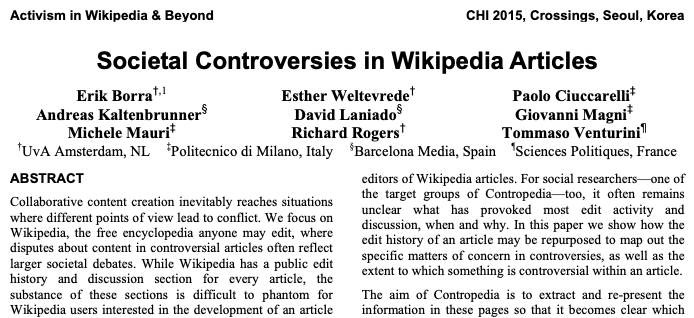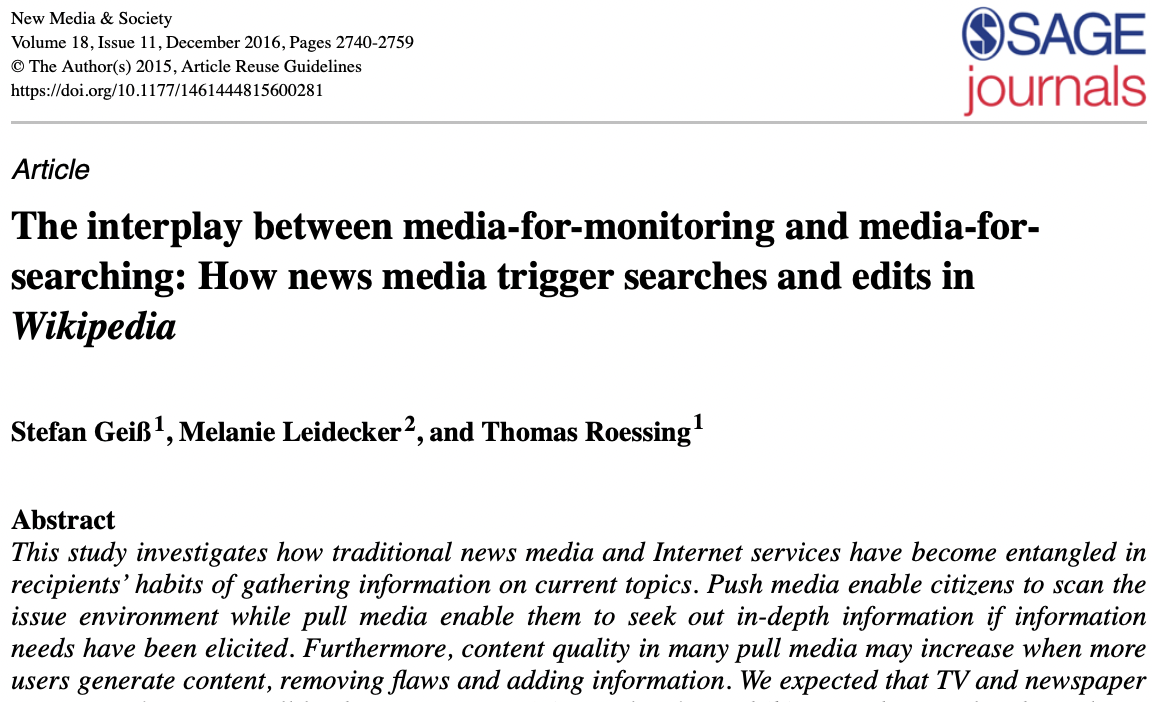Literature review
We are basing our browser extension on two research papers.

Societal Controversies in Wikipedia Articles
Available hereFirst, Wikipedia edit history pages are usually ignored (Borra et al.), so we aim to make this rich information easily available to users by using the history information to highlight portions of the text that have been recently edited. Wikipedia works on good faith collaboration, aiming for a neutral point of view by addressing controversy to get to neutrality; therefore, understanding the parts that are well accepted is a paramount part of using Wikipedia. Our extension is inspired by Contropedia, which also aims to provide insight into the socio-technical phenomena on the internet, but by highlighting content that is still being continuously edited by the Wikipedia editing community.
Borra, E., Weltevrede, E., Ciuccarelli, P., Kaltenbrunner, A., Laniado, D., Magni, G., Mauri, M., Rogers, R., & Venturini, T. (2015). Societal controversies in Wikipedia articles. Proceedings of the 33rd Annual ACM Conference on Human Factors in Computing Systems. https://doi.org/10.1145/2702123.2702436
The interplay between media-for-monitoring and media-for-searching: How news media trigger searches and edits in Wikipedia
Available hereGai et al. found that current news leads to increased Wikipedia page views and article edits. This can be explained by citizens trying to further their understanding once their need for sense-making is evoked (Schudson). Both article views and edits remain above average for about 7 days after the fact. For this reason, having a time series of article edits and page views can be useful when trying to get a broad sense of whether the topic was current at one point in time.
Gei, S., Leidecker, M., & Roessing, T. (2016). The interplay between media-for-monitoring and media-for-searching: How news media trigger searches and edits in wikipedia. New Media & Society, 18(11), 2740–2759. https://doi.org/10.1177/1461444815600281